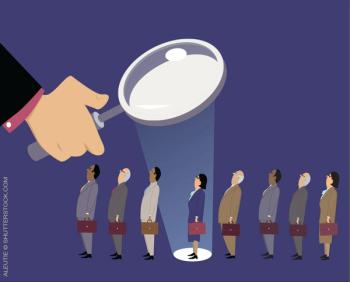
The next phase of HIPAA compliance audits has arrived. Clinicians who are HIPAA-covered entities-or business associates-would be well served to prepare now.

The next phase of HIPAA compliance audits has arrived. Clinicians who are HIPAA-covered entities-or business associates-would be well served to prepare now.
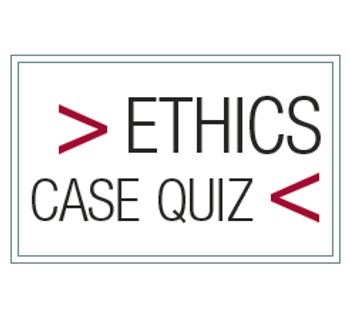
“Googling” a patient does not seem much different from the old-fashioned obtaining of collateral information, but the ramifications may be far more than you bargain for.
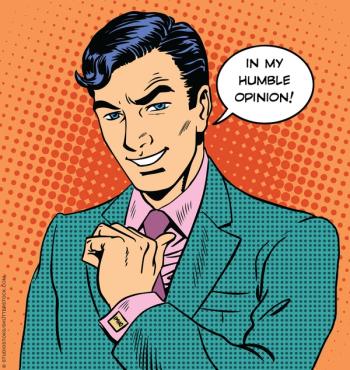
The ethical core of the Goldwater Rule is sound, but the rule needs clearer and more nuanced language.
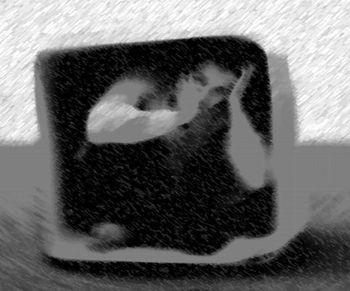
With the modern office environment comes another type of “climate change”-designed to shape workers psychologically.
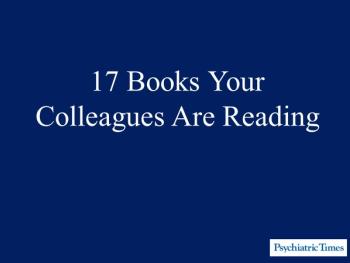
"Everyday experiences made sacramental through magical language, depth of feeling, and wells of knowledge"–one of your peers used this description for a book he found inspiring. Can you think of more?
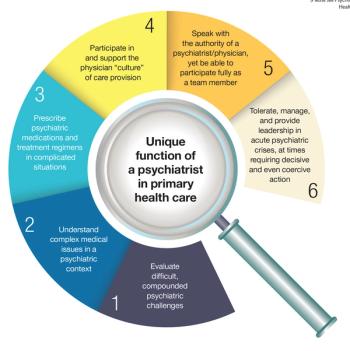
Do psychiatrists add value to primary care health teams compared to non-psychiatrist mental health providers?

If left untreated, burnout can become chronic and debilitating. Here are tips to recognizing the signs and symptoms.
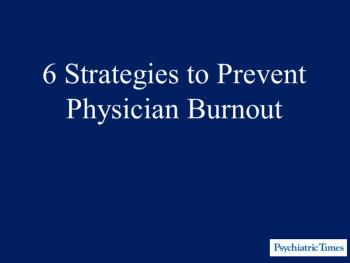
Once a health care professional has reached a chronic stage of burnout, lives may be at stake. But prevention and treatment are possible.

The very traits that define a good physician make it difficult for most doctors to prioritize basic self-care. Many fail to notice early signs of dysfunction.
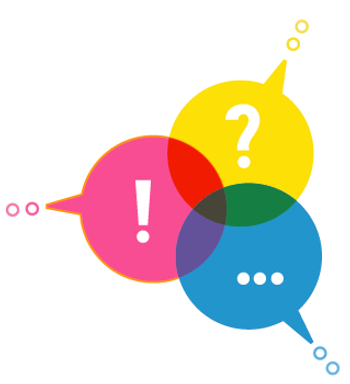
Collaboration between the psychiatric nurse practitioner and psychiatrist will be part of the solution to the workforce issue that leaves so many underserved patients without good mental health care.
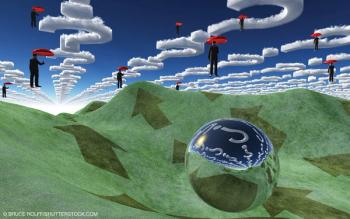
Children in foster care; combat vets; physicians with mental health needs: Dr Koh introduces a series of articles on these and other special patient populations.
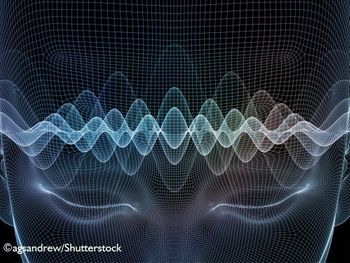
In recent years, health care insurance companies (and the businesses that use them) have begun to invest in mindfulness research and programs What has happened to explain this development?
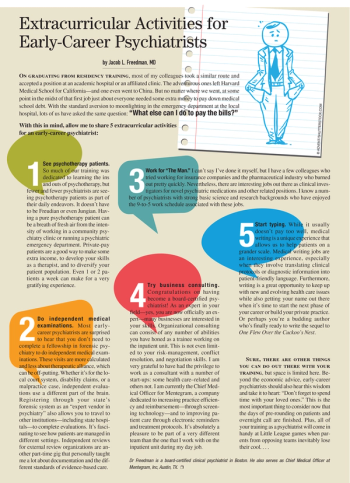
With the standard aversion to moonlighting in the emergency department at the local hospital, lots of us have asked the same question: “What else can I do to pay the bills?”
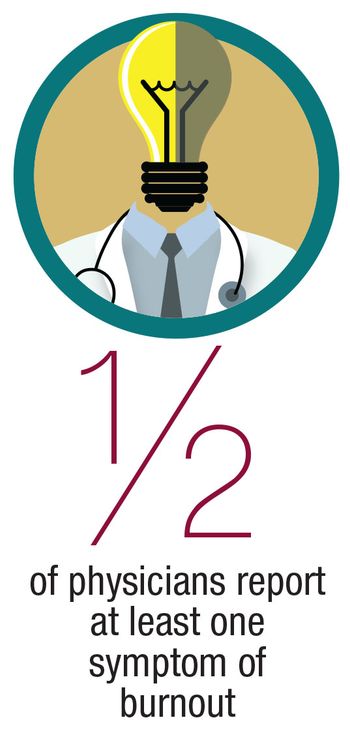
Drained physicians who don't practice self care may harm themselves and their patients. Here's one way to take a breather.
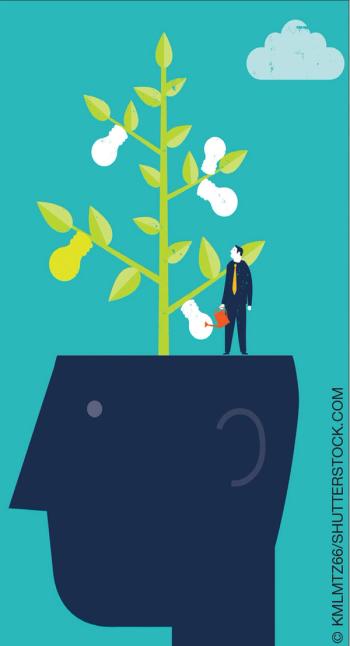
Although genetic discoveries are sprouting up like wildflowers, let's stop and smell the roses.
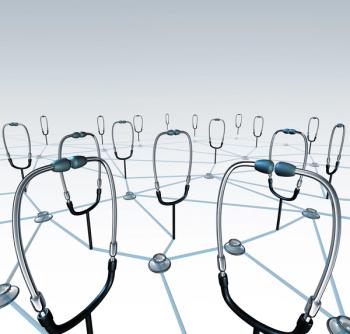
We celebrate April Fool’s Day for sound psychological reasons, and there are lessons to be learned.

We invite you to join our Early Career Advisory Board and share your insights about psychiatry, your interests, ideas, and goals.
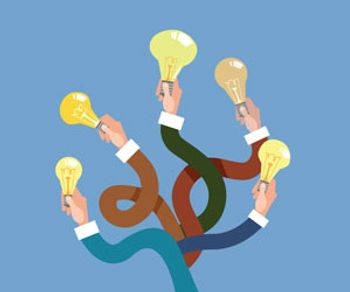
We are seeking your real-life story that can move, teach, and inspire other psychiatrists.
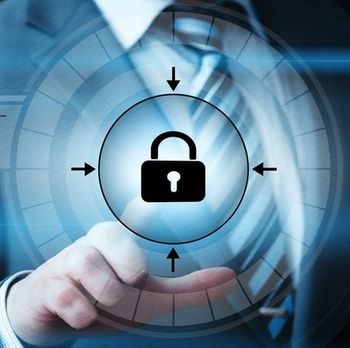
With now over 165,000 health care apps directly available for download today, how can psychiatrists identify which are the most helpful and which to avoid?
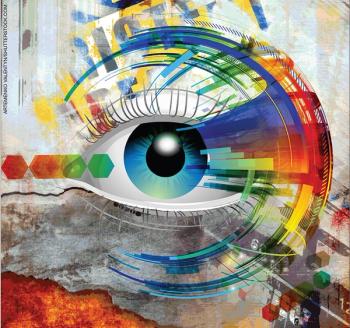
After a brief description of the scope of an important IOM report, this article summarizes content that is especially relevant for psychiatrists.
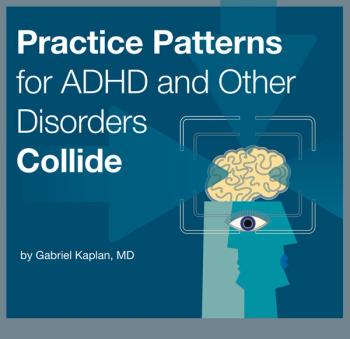
Recent data show that widespread discrepancy exists between clinical guidelines and practice patterns for ADHD, dementia, and bipolar disorders.
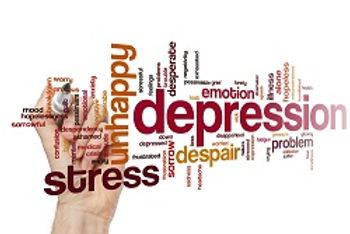
Recently, there were two reports about concerns over changes in terminology in our field. So, what's in a name?

This will be a busy year as the role of new digital tools in medicine converge to offer novel opportunities to clinical care.
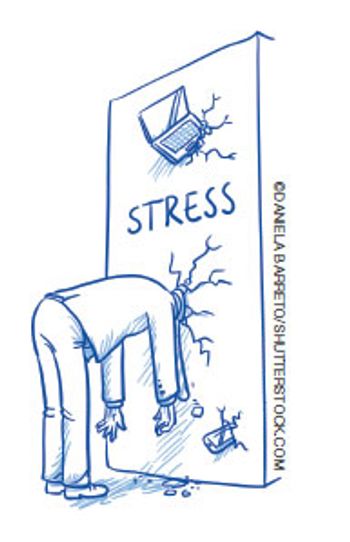
We psychiatrists are best equipped to design and participate in programs to help diminish workplace triggers for burnout. And, even more important, we are well equipped to recognize signs of burnout in ourselves.

Hopefully the words imparted here convey the scope of our profession and psychiatry at its best. We have been-and should be-so much more than the current 15-minute med check.